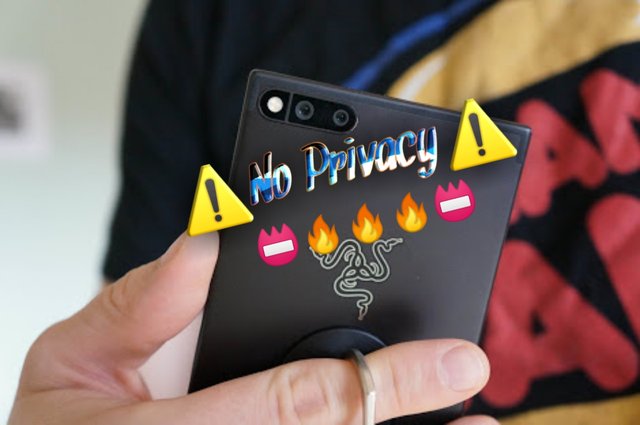
IT has been wide rumored that package and internet applications created in China are usually designed with a “backdoor” feature, permitting the manufacturer or the govt. to observe and collect information from the user’s device.
But however precisely will the backdoor feature work? Recent discussion among transportable users in People's Republic of China has shed some light-weight on the question.
Last month, users of Vivo NEX, a Chinese humanoid phone, found that after they opened sure applications on the phone, together with Chinese web large QQ browser and travel booking app Ctrip, the mobile device’s camera would self-activate.
Different from most mobile phones, wherever a camera will be activated while not giving the user any signal, the Vivo NEX encompasses a small retractile camera that physically pops out from the highest of the device once it's turned on.
Though maybe accidentally, this style feature has given Chinese mobile users a tangible sense of precisely once and the way they're being monitored.
One Weibo user determined that the retractile camera self-activates whenever he opens a replacement chat on message, a electronic communication application designed for secured and encrypted communication.androide-google-handy-1178863-1 whereas message reacted quickly to reports of the problem and stuck the camera bug, Chinese web large Tencent instead defended the feature, disceptation that its QQ browser desires the camera activated to organize for scanning QR codes and insisted that the camera wouldn't take photos or audio recordings unless the user told it to try to to thus.
This rationalization wasn't assuasive for users, because it solely disclosed the degree to that the QQ browser may record users’ activities.
After the news of the self-activated camera bug unfold, users started testing the problem on alternative applications and located that Baidu’s voice input application has access to each the camera and voice recording perform, which might be launched while not users’ authorisation.
A Vivo NEX user found that when she had put in Baidu’s voice input system, it might activate the phone’s camera and recording perform whenever the user opened any application — together with chat apps, browsers — that enables the user to input text.
Baidu says that the self-activated recording isn't a backdoor however a “frontdoor” application that enables the corporate collect and befits ground noise thus on steel oneself against and optimise its voice input perform.
This wasn't assuasive for users — any mike collection ground noise would additionally unquestionably capture the voices and conversations of a user and whomever she speaks with face-to-face.
Baidu has been disreputable for snooping into users’ non-public information and activities. In Jan 2018, a government-affiliated client association in Jiangsu province filed a proceedings against Baidu’s search application and mobile browser for snooping on users’ phone conversations and accessing their geo-location information while not user consent.
But the case was born in March when Baidu updated its applications by securing users’ consent for management over their mobile camera, voice recording, geo-location information, although these controls aren't essential to the application’s practicality.
In response to public concern regarding these backdoor options, Baidu and alternative Chinese web giants could defend themselves just by disceptation that users have consented to having their cameras activated.
But given the noncompetitive nature of Chinese web giants within the country, do normal users have the facility — or the selection — to mention no?
How will camera snooping have an effect on individuals outside China?
These snooping options haven't simply affected individuals from People's Republic of China, however all of these from outside the country United Nations agency need to speak with friends in China.
As the Chinese government has blocked most leading foreign social media technologies, anyone United Nations agency needs to speak with individuals in China has very little alternative however to put in applications created in China, like WeChat.
One strategy for increasing one’s mobile privacy once victimization Chinese-made applications is to stay all insecure applications on one device and assume that these communications are going to be recorded or spied upon, and to stay a second device for safer or “clean” applications.
When victimization associate degree encrypted communication application like message to speak with friends in China, one additionally has got to ensure that their friends’ mobile devices ar clean.
#UpvoteForUpvote #TrevonJB #CraigRant